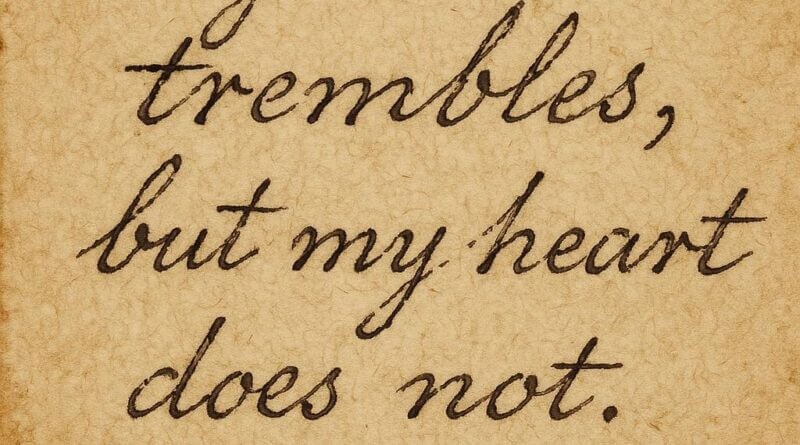The Hand That Trembled: The Power of Steady Hearts That Shaped Our Country
Stephen Hopkins of Rhode Island was 69 years old when he walked into the Continental Congress on July 4th, 1776. A scholar, merchant, and former governor, Hopkins had spent his life not chasing glory, but pursuing reason. He read voraciously, wrote with a calm moral clarity, and believed, above all, in the power of ideas to shape the world.
He also had a condition — likely Parkinson’s disease — that made his hand shake violently when he tried to write. As the delegates stepped forward to sign the Declaration, Hopkins stood before the parchment, took the quill, and — with great effort — scrawled his name. The pen wobbled, the letters uneven and laborious.
And then, with a wry smile, he said:
“My hand trembles, but my heart does not.”
It is, in that single sentence, the most human expression of courage you’ll ever find.
That line — never as famous as Franklin’s witty one-liners or Jefferson’s lofty prose — tells us something essential about what it means to be an American. It’s not about being fearless. It’s about being brave despite the fear. Hopkins’ trembling hand was a physical manifestation of what every man in that room must have felt: vulnerability, exposure, the raw terror of uncertainty.
But Hopkins signed anyway. They all did.
We have a tendency, in this country, to mythologize our founding. To wrap it in red, white, and blue and turn it into something glossy and untouchable. But what actually happened on July 4th was far messier, far riskier, and far more courageous than myth allows. These were not superheroes. They were farmers, lawyers, merchants, printers — men with families, debts, illnesses, enemies. They weren’t just signing a document. They were signing away their protection, their privilege, even their lives.
And that’s what makes the story enduring. Not its perfection — but its imperfection. Not the glory — but the grit.
We celebrate July 4th with parades and fireworks, but maybe we should celebrate it differently. Maybe we should light a single candle in a quiet room and remember Stephen Hopkins: an old man, hand shaking, heart steady, leaning over a piece of parchment that would change the world.
Because in the end, the birth of America was not written in triumph. It was written in trembling ink, under the weight of doubt — and signed with the kind of courage that whispers rather than shouts.
“My hand trembles, but my heart does not.” That’s not just a quote from a forgotten signer.
That’s America, at its very best.


